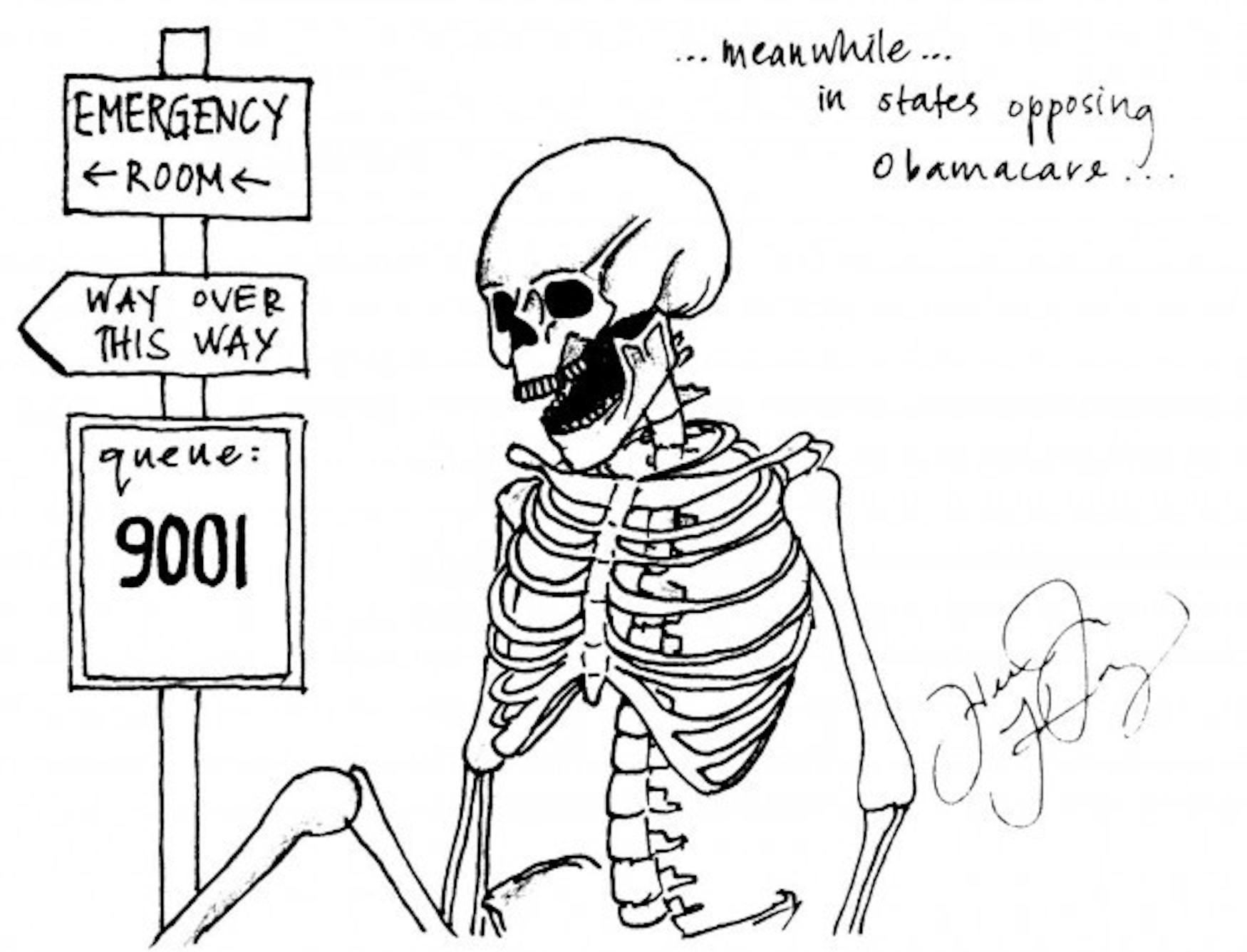All states should embrace Medicaid expansion
Judge's View
With 2014 fast approaching, the federal government is preparing to implement a number of policies enacted under the Affordable Care Act of 2010, otherwise known as Obamacare. Even three years after its enactment, and more than one year after the Supreme Court upheld its constitutionality, many Republican governors and state legislatures are still fighting one of its signature provisions: the expansion of the Medicaid health insurance program, which insures millions of low-income patients. By refusing expansion, those opponents are only hurting their constituencies as well as their future political prospects.
To qualify for Medicaid, a beneficiary's annual income cannot surpass Medicaid's income eligibility cap, which, depending on his state's Medicaid program, can vary from 100 to 133 percent of the federal poverty level income, which is approximately $11,490 per person. In many cases the individual must simultaneously meet certain demographic qualifications too, such as being married with children or disabled.
Unfortunately, these standards have left many other unqualified but needy patients without insurance.
ACA's Medicaid expansion directs states to abolish the demographic requirements and standardize the income requirement to cover individuals with income at or below 138 percent of the federal poverty level. However, after the provision was declared optional by he Supreme Court on year, 22 Republican governors and state legislatures, many of whom oversee states with large low-income populations, have determinedly refused the expansions to demonstrate their ideological opposition to the ACA.
For example, Governor Bobby Jindal of Louisiana stated that the policy would not only be fiscally foolish, but would also mean "giving up more and more of our freedoms to an ever larger and more powerful government" and moving toward government-run health care. The ideological decisions of those states would mean that 3.6 million Americans, according to the RAND Corporation, a policy research organization, would continue to go without insurance, thus continuing the problems of having uninsured populations.
Without insurance, poorer patients are more likely to forgo regular care because of their inability to pay.
As such, when they need medical attention, they are more likely to visit the local emergency room, which is obligated to treat them regardless of their ability to pay. However, using emergency services for many preventable and minor conditions is costly and wasteful. Since poor patients often cannot pay for the care, health care providers cover those services by raising costs on insured patients. In a June study, the RAND Corporation predicted that those states' forfeiture of the expansion would result in them wasting one billion dollars on avoidable uncompensated care by 2016.
Those patients' lack of insurance also complicates the management of their long-term health. Without regular care, they cannot access many preventative and chronic disease management services. As a result, their conditions, which include diabetes, cardiovascular disease and respiratory illnesses, can worsen and become unnecessarily complicated and expensive to treat.
States also stand to lose a lot by denying the program expansion. Although many governors have claimed that the policy is unaffordable, they are woefully ignorant to several facts. First, from 2014 to 2016, the first two years of the ACA's expansion, the federal government will pay for all of the expansion costs, only gradually reducing its contribution to 90 percent by 2020.
If the states adopt the policy by 2014, there will be little financial burden on them, as all or most of the expenses will be paid by federal dollars instead of state revenues. Second, by refusing this offer, those states will forfeit $8.4 billion of valuable federal funds per year beginning in 2014. If they decide to expand their programs later on, not only will they receive less assistance with the expansion once the federal funding is reduced, but they also will have missed out on valuable funding when it was available to them.
Undoubtedly, the decisions of those 22 Republican state governments risk tarnishing the image of the party, too. Not only will the party repel more low-income constituencies who would benefit from the expansion, but it also risks further damaging its relations with minorities. With this expansion, ethnic and racial minorities will gain the most, as the majority of newly eligible beneficiaries are minorities. According to the Kaiser Family Foundation, 47 percent of potentially eligible minority beneficiaries live in states that have refused the expansion, and almost 60 percent of potentially eligible African Americans live in those states, too. With the Republicans' reputation deteriorating among minorities, those politicians are not helping themselves by limiting access to health insurance in these populations.
Admittedly, Medicaid does not provide the best care coverage when compared to private insurance, but for many needy patients, it is all they have. To me, health care is a human right, and to withhold it from vulnerable citizens out of political spite is a great injustice.
*




Please note All comments are eligible for publication in The Justice.